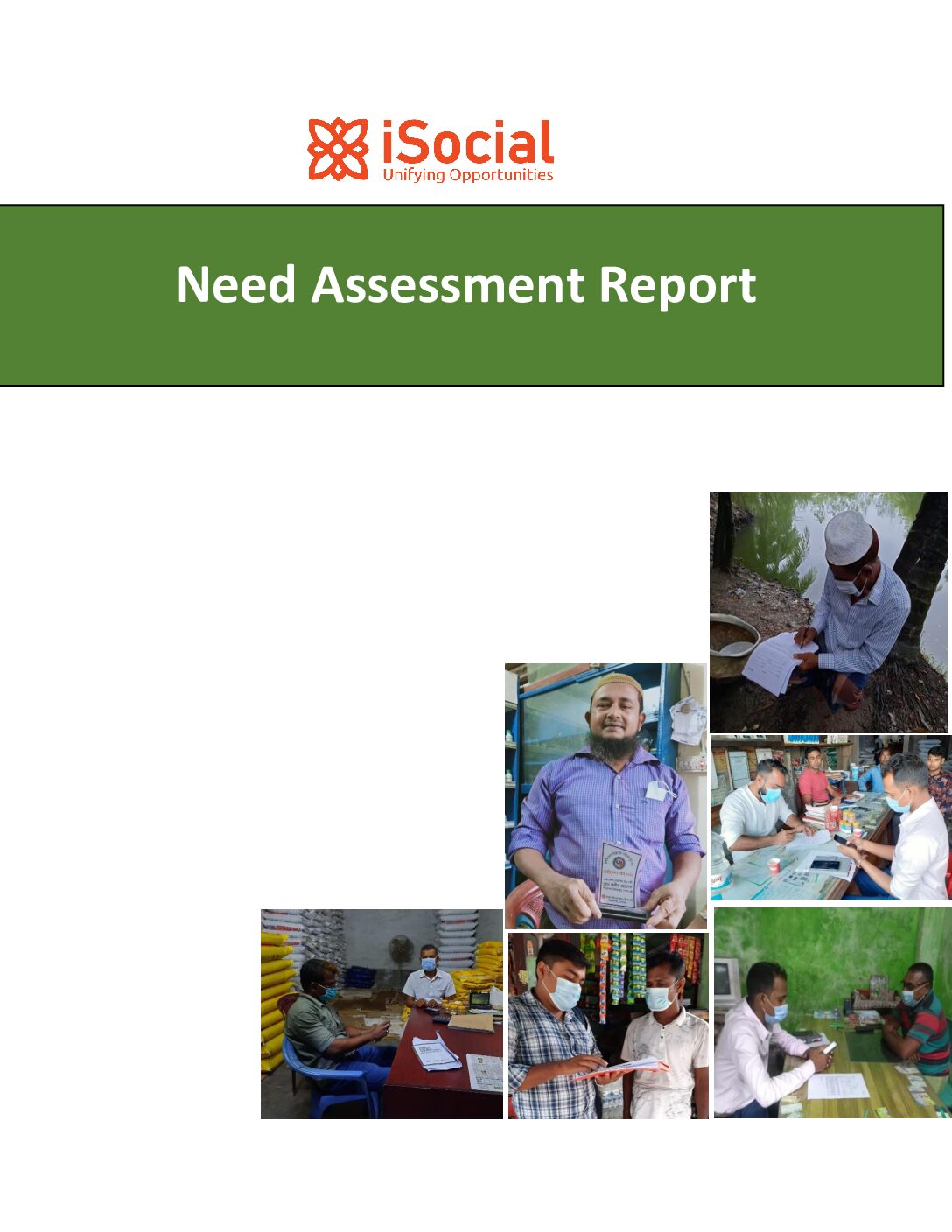Conducting market assessment to understand the feasibility of facilitating the expansion of the Kallyani micro-franchise model in building a sustainable livelihood for small scale aquaculture farmers, and onboarding women-micro entrepreneurs to implement the model expansion plans.
Project timeline:
Aug, 2020 – Dec, 2021
Partners:
- WorldFish
Project objective:
To create locally relevant and business viable product & service portfolio for the small-holder farmers, other clients and micro-franchise.
Specific objective of the study-
- Analyzing the need of the products & services under the lens of availability, accessibility, acceptability and affordability by the target citizens.
- Illustrating the supply-chain of identified products & services to be delivered to target group.
- Drawing the matrix of Products & Service Portfolio including Unique Selling Point (USP) frequency, demand, cost driver, investment, price, margin, portability, competition, channels, limitations, impact, etc. summarise the objective
Project outcome:
- Established Product and Service Portfolio: A locally relevant and business-viable product and service portfolio for smallholder farmers, other clients, and micro-franchises is created, considering availability, accessibility, acceptability, and affordability.
- Mapped Supply Chains: Clear supply chains for identified products and services are illustrated for efficient delivery to the target group.
- Detailed Product & Service Matrix: A comprehensive matrix is developed for the portfolio, outlining key aspects like USP, demand, cost drivers, investment, pricing, margins, portability, competition, channels, limitations, and impact.
- Enhanced Farmer Practices: A significant increase in the adoption of improved fish farming practices among farmers, including water quality parameter testing, fingerling adjustment, predator removal, and proper feed management.
- Improved Input Trader Capabilities: Input traders gain improved business knowledge and provide enhanced additional services beyond selling inputs, such as technical suggestions, credit facilitation, and stakeholder connections.
- Strengthened Stakeholder Linkages: Improved linkages are fostered among different stakeholders in the fish farming ecosystem, including farmers, input traders, and hatcheries.
- Diversified Kallyani Product Basket: The Kallyani product basket is expanded to include a range of aqua-related products and services, as well as SRHR products and digital financial services.
Locations the project served: Jashore, Bangladesh
Impact:
- Increased Fish Production and Profitability: Farmers experience higher survival rates, improved fish growth, and ultimately increased yields and profitability from their fish farming operations.
- Improved Farmer Livelihoods: Enhanced income and financial stability for smallholder fish farmers due to better farming practices and access to quality inputs and services.
- Reduced Financial Vulnerability of Farmers: A decrease in farmers’ dependency on high-loss credit for input purchases, leading to more sustainable financial practices.
- Enhanced Technical Knowledge and Capacity: A significant improvement in the technical knowledge and practical skills of fish farmers, leading to more efficient and productive farming.
- Better Access to Quality Inputs and Services: Farmers gain improved access to good quality and variety of fish feed, water quality testing, disease identification facilities, and other crucial inputs and services.
- Sustainable Aqua-sector Development: The project contributes to the overall development and sustainability of the aquaculture sector by addressing key limitations and fostering better practices.
- Empowered Micro-Franchises: Creation of a sustainable channel for knowledge, service, and product providers through the engagement of micro-franchises, leading to local economic growth.

